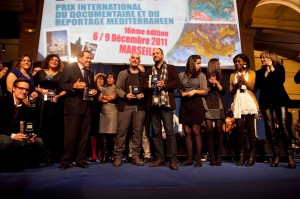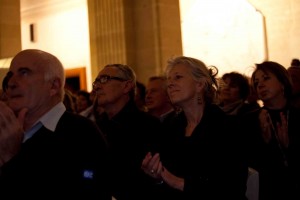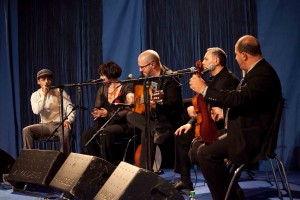The 16th edition – Marseille 2011
Musique : Kevin MacLeod – Réalisation : Franco F. Revelli
Réalisation : Franco F. Revelli
The Award ceremony :
PriMed 2011 AWARDS !
Best documentary film – “MEDITERRANEAN ISSUES”category – Sponsored by France Télévisions (6000 €)
“WOMEN OF HAMAS” by Suha ARRAF
“MEDITERRANEAN MEMORY” AWARD – sponsored by Institut National de l’Audiovisuel (5000 €)
“Abdelkrim et la guerre du Rif” by Daniel CLING
“MEDITERRANEAN ART,HERITAGE AND CULTURE” AWARD – Sponsored by Ville de Marseille (5000 €)
“Damascus Roof and Tales of Paradise” by Soudade KAADAN
“FIRST FILM” AWARD – Sponsored by RAI RadioTelevisione Italiana (5000 €)
“Blagues à part” by Vanessa Rousselot
“INVESTIGATIVE DOCUMENTARY” AWARD – Sponsored by Radio France (5000 €)”
“Wolves Plate” by Mona IRAQI
SPECIAL JURY’S AWARD – Sponsored by Collectivité Territoriale Corse (5000 €)
“Paradise Hotel” by Sophia Tzavella
YOUNG PUBLIC AWARD – Sponsored by la Marseille Provence Métropole (5000 €)
“Blagues à part” by Vanessa Rousselot
BROADCASTING AWARD – VIA STELLA
“Abdelkrim et la guerre du Rif” by Daniel CLING
BROADCASTING AWARD – TV5 MONDE
“Abdelkrim et la guerre du Rif” byDaniel CLING
BROADCASTING AWARD – RAI
“Zelal” by Marianne KHOURY and Mustapha HASNAOUI
MEDITERRANEAN SHORT FILM AWARD – Sponsored by Marseille Provence 2013 (2500 €)
“Mothers, 0.15 cent a minute” by Marina SERESESKY
MEDITERRANEAN MULTIMEDIA AWARD – Sponsored by Orange (2500 €)
“Il Viaggio di mohammed” by Debora SCAPERROTTA
photos of Anaïs Ginoux
Conference of 16th edition : “THE SCREENS OF ARAB SPRINGS”
The Mediterranean Audiovisual Landscape face of the news events of Arab Spring in 2011. Excerpts from documentaries, analysis and debateswith the presence of witnesses, experts and professionals of the Mediterranean audiovisual sector.
CLICK HERE TO WATCH THE VIDEO OF CONFERENCE
___________
THE SELECTED FILM FOR PRIMED 2011
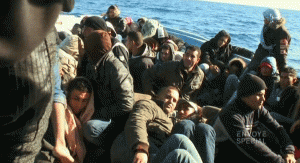 ENJEUX MEDITERRANEENS
ENJEUX MEDITERRANEENS
– Hymen National by Jamel MOKNI
– The Human Turbine de Danny VERETE
– Zelal de Marianne KHOURY et Moustapha HASNAOUI
– Women of Hamas de Suha ARRAF
MEMOIRE DE LA MEDITERRANEE
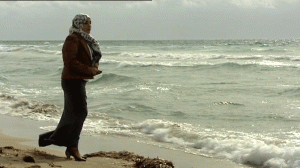
– 70 years of silence – Spain, memory and transmission de Emile NAVARRO
– Abdelkrim and the Rif war by Daniel CLING
– François Mitterrand and the Algerian war by Frédéric BRUNNQUELL
– The island of Roses by Stefano BISULLI et Roberto NACCARI
ART, PATRIMOINE ET CULTURES DE LA MEDITERRANEE
– Damascus Roof and Tales of Paradise by Soudade KAADAN
– Fortuny and the wanderful lamp by Claudio ZULIAN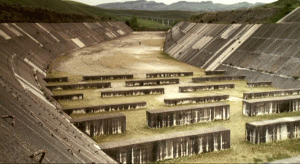
– Mouss et Hakim, controlled origins bySamia CHALA
– My Sweet Canary by Roy SHER
PREMIERE ŒUVRE
– Blagues à part de Vanessa ROUSSELOT
– Diaries by May ODEH
– Paradise Hotel de Sophia TZAVELLA
– Unfinished Italy de Benoît FELICI
REPORTAGE D’INVESTIGATION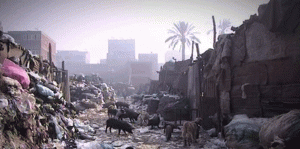
– Kadhafi, our best enemy by Antoine VITKINE
– Imams go to school by Kaouther BEN HANIA
– The Last Breath by Sameh MOUSSA
– Tunisia, the shipwrecked of the revolution by Alexandra DENIAU, François RENAUT and Christophe KENCK
– Wolves Plate by Mona IRAQI
COURT MEDITERRANEEN
– Libye, the women of revolution by Marie-Laure BAGGIOLINI WIDMER
– My dream bike by Serda YALIN
– Mothers 15 Cents a minute by Marina SERESESKY
– Sayda by Michael ABI KHALIL
– Warsheh by Lucile GARCON
MULTIMEDIA AWARD
– Geopolis – Maghreb
– The voyage of Mohammed
– The lovers of ‘Alexandrie
– An oasis upon the hill
-A Somalian in Paris
PRESELECTION 2011
The pre-selection jury of the 2011 PriMed met in Marseille from June 20th to 24th. This year we had a record 316 films from 28 countries. Most were French, Italian or Spanish, but there were Egyptian, Tunisian and Algerian films as well. As for the Ukraine, Montenegro, Bulgaria and Poland, they each made their first appearance in the PriMed listings.
Amer ABOU-DAYA, Al Hiwar TV : The CMCA has given me a very beautiful experience. I met jury members from many different nationalities. The selection took a long time and was very hard, but at the same time it was enriching: different directors, different people, different ways of working, short and long films, films about the past, artistic films. My first criterion was always how much pleasure I had watching them. Even if the the images, the editing or the music were perfect, some films’ subject matter did not touch me.
Nathalie ABOU-ISAAC, CeReM (Centre Régional de la Méditerranée) : To be part of this pre-selection jury, viewing a quantity of documentary films over five days, is like opening a window on to other parts of the Mediterranean. We had the privilege of plunging into a reality which normally we never see. As usual with PriMed, each category offered enormous quality and rich subject-matter well analysed, films fed from archives made with commitment and originality. I particularly remember the great quality of the Memories category. The directors once again show their essential role in recording witnesses, the spoken word, discussions which shake the Mediterranean world.
Jacques BAYLE, France Télévisions :A week of intense concentration. Eight hours of screenings a day. Serious subjects, mad laughter, delightful surprises, sometimes tears. And at the end, a 16th PriMed which promises to be a great vintage. My favourites? I shall always remember the film about Abdelkrim, the great Moroccan leader, defeated by Franco and Pétain in the bloody Rif War, who had this prophetic warning: “I came too early!” In the same category, who knew anything about Giorgio Rosa? An Italian engineer who built a platform off the coast of Rimini and decided to create an independent territory complete with casino, flag and currency….Two examples where History, with a capital H, is made by the exploits of extraordinary individuals. Two examples among many of the richness of the documentaries screened this June in Marseille. But through all these stories, during dozens of hours of viewing, without doubt what marked me most were the faces of the Mediterranean women: some, in Libya, determined to fight, others, in the Lebanon, destitute, crushed but dignified, yet others shattered but triumphant after the martyrdom of a son in Gaza, or at the heart of the demonstrations in Tunisia and Egypt. Women, always women, who abrogate laws, overthrow taboos and who are never the last to topple the old dictatorships. At what if it were women who were the real stars of this 16th PriMed?
Nadia BENDJILALI, journalist at JMed (www.lejmed.fr) :The PriMed I have just experienced as a jury member is a magnificent voyage around the Mediterranean, experiencing its reality and its challenges. A Mediterranean revealed by a selection of documentaries and current affairs films with varied subject-matter and great quality, films which show this zone of intersections and interferences with sensitivity and clearsightedness. An area which is a fascinating theatre of diversity and richness, but also a Euro-Mediterranean challenge, scarred by burning issues such as migrants moving north from the south, occupied territories, wars, and then questions about the place of freedom or how to live together. Many images, sounds, of women and men, of the past, the present which nourished me and allowed me to pursue my own exploration of the Mediterranean. And this with a pre-selection jury and CMCA team all part of this Mediterranean spirit, a generosity which brings people together while respecting their differences. Thank you to the directors who gave us deeper insight into this Mediterranean both singular and plural.
Nicola CALIGIORE, RAI (Radio Televisione Italiana) : I was happy to take part again in the PriMed pre-selection. Each year the Prix gets stronger and stronger – last year was a superb experience for me. This year I was part of the the Mediterranean Issues jury at a time when Europe is as much concerned by these issues as the southern section. The films presented are the best means of telling people about the new challenges facing Europe. There were many interesting subjects, especially coming from Italy – which as an Italian I appreciate:in particular a documentary about second generation Muslim immigrants in Italy and how they are becoming integrated. We spent our days viewing all the films and eventually made our choices by analysing different aspects, such as the quality of the images, the importance and relevance of the subject, innovation..Personally I am both impressed and satisfied by our final choice.
Marie-Christine HELIAS, INA MéditerranéeAnother chance to see exceptional documentaries as a member of the CMCA pre-jury, this year I worked on Memories and Heritage. This Mediterranean so full of frontiers, conflicts, taboos – even if things are changing fast – I came out with a much broader understanding, my mind more open. Seeing all these documentaries together is a marvellous window on to the whole region. This year the Heritage category was particularly rich with very interesting films. I found a new input by directors from the southern Mediterranean – young, but also not so young – who are doing a very fine job. I am thinking of what we saw on the awakening of Algerian cinema, on the passing down of traditional Algerian songs through the generations… So, amazing things, very interesting and very well done. Thank you!
Sami SADAK, Ethno-musicologist, Artistic Director of Babel Med Music: “To begin to understand the Mediterranean, you need to think unity, diversity and conflicts,” wrote Edgar Morin. “You need a mind which is not linear, a mind for dialogue, a mind which grasps things both complementary and antagonistic.” In the creative Mediterranean this comes from a harmony made by opposing tensions, like the bow and the lyre. The Mediterranean identity was forged by successive waves of immigration, people crossing the sea in sailing boats from one land to another, this sea which links the land, which surrounds them, “the sea between the lands” the sea which unifies more than its divides. So as a jury we all felt the pain of the Palestinian woman whose son had been killed in a bomb attack (Women of Hamas), we all heard for the first time Greek people telling us how, as children, they had been saved from the Holocaust (Kisses to the Children), we all felt the terror of the mass graves of the Spanish civil war (70 Years of Silence – Spain, Memory and Transmission), we all shared the urge to rise up with Abdelkrim in revolt against colonialism (Abedlkrim and the Rif War), we all sang Rebetiko music in the dives of Pireaus with Roza Eskenazi (My Sweet Canary). I must admit one does not come out of these day-long screenings unscathed, even if the CMCA team’s welcome is perfect. Thank you again for these discoveries which otherwise would have passed me by.
Michelle STEWART, Teacher at the University of New York, Mediterranean Cinema Option: I viewed the Art, Cultures and Heritage category. We chose films of good quality but which also showed different aspects of the Mediterranean. We wanted all the different cultures to be represented. There are also subjects shared by different Mediterranean cultures. There were several interesting films on music, in particular music as a way of transmitting cultures which are traditional and dynamic. Other films showed how music expresses the changes in a culture, how musical tastes have changed with the commercialisation of culture. All this is part of the whole issue of the flow of people and ideas across the Mediterranean, sounds, music, media and images.
